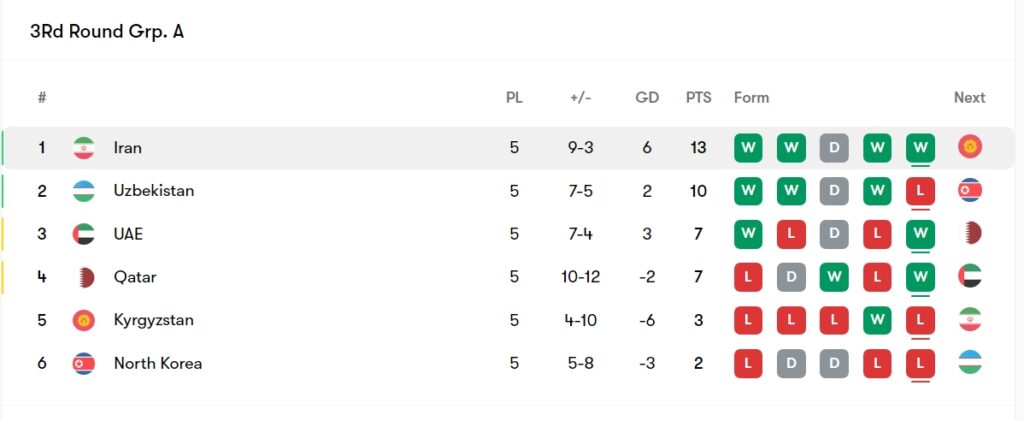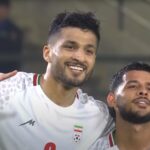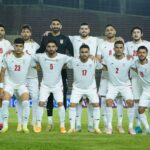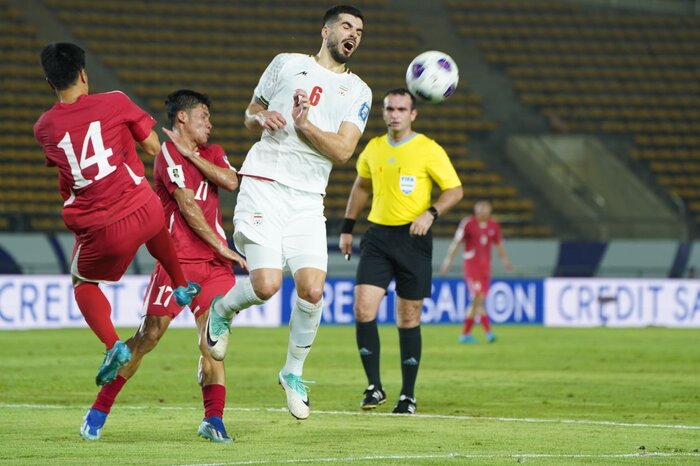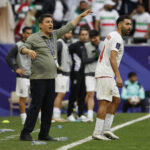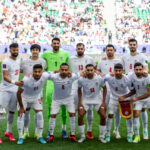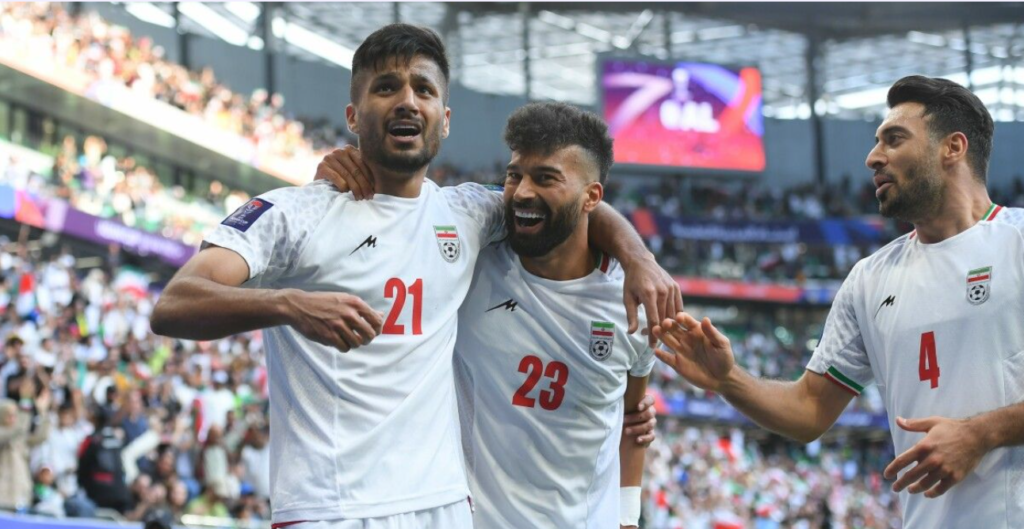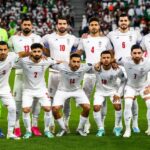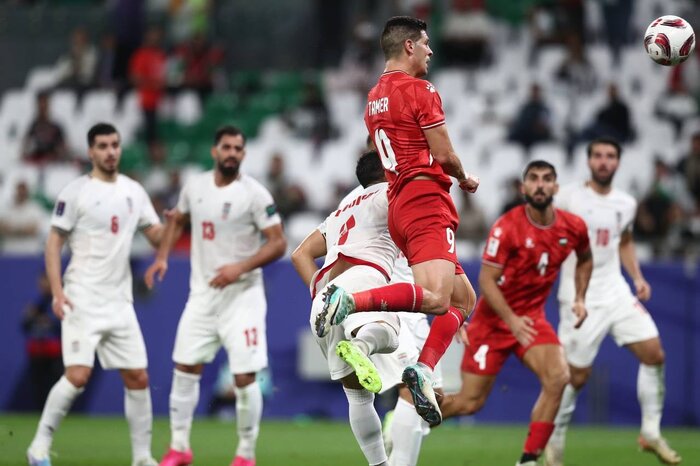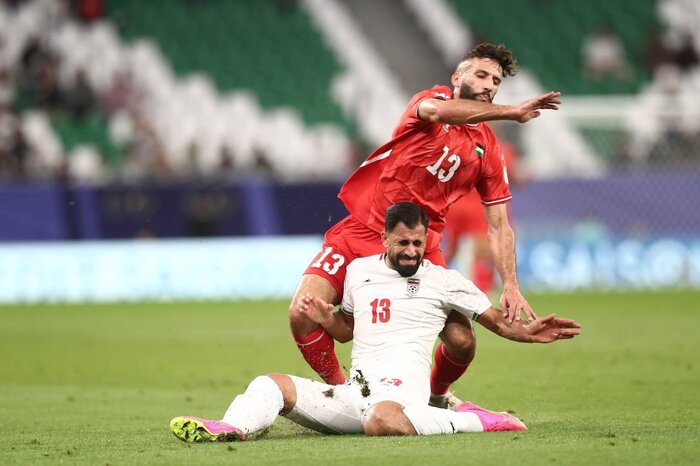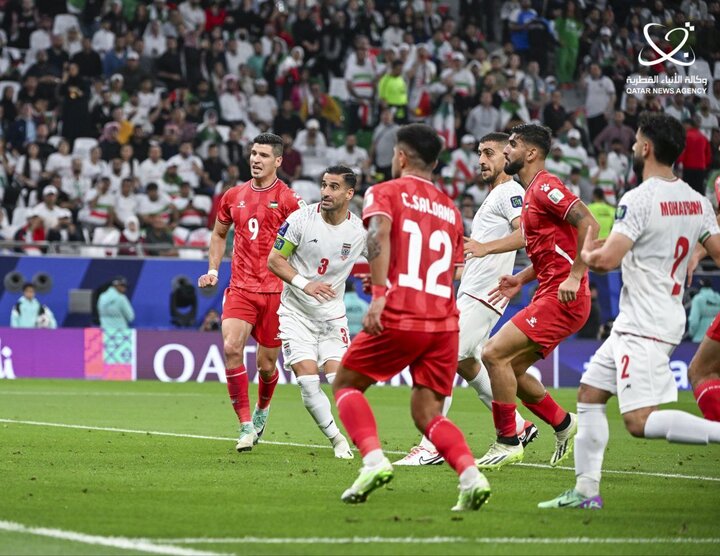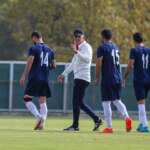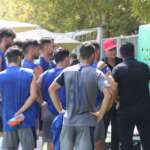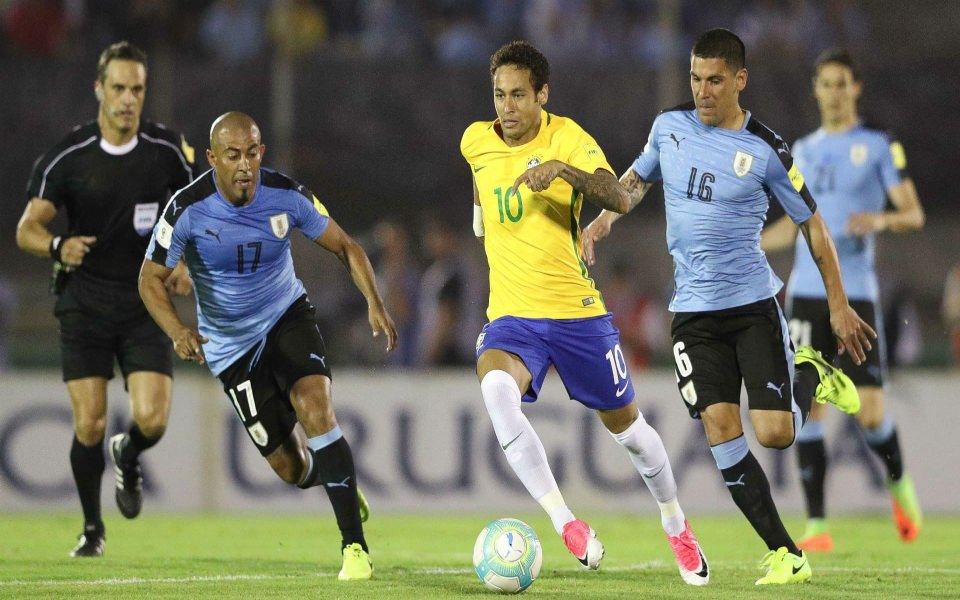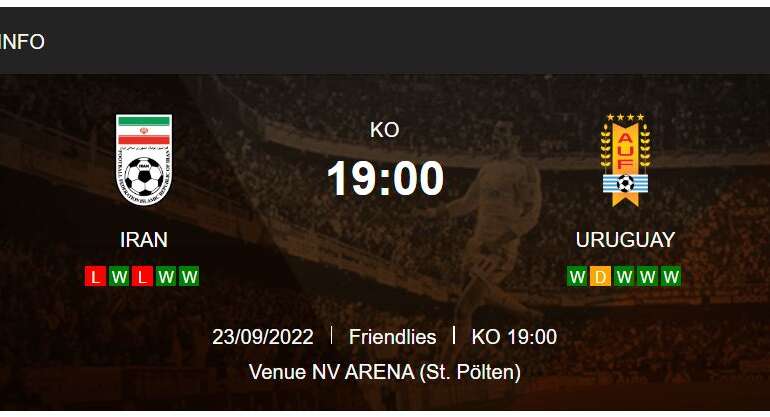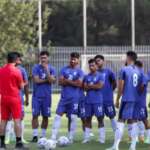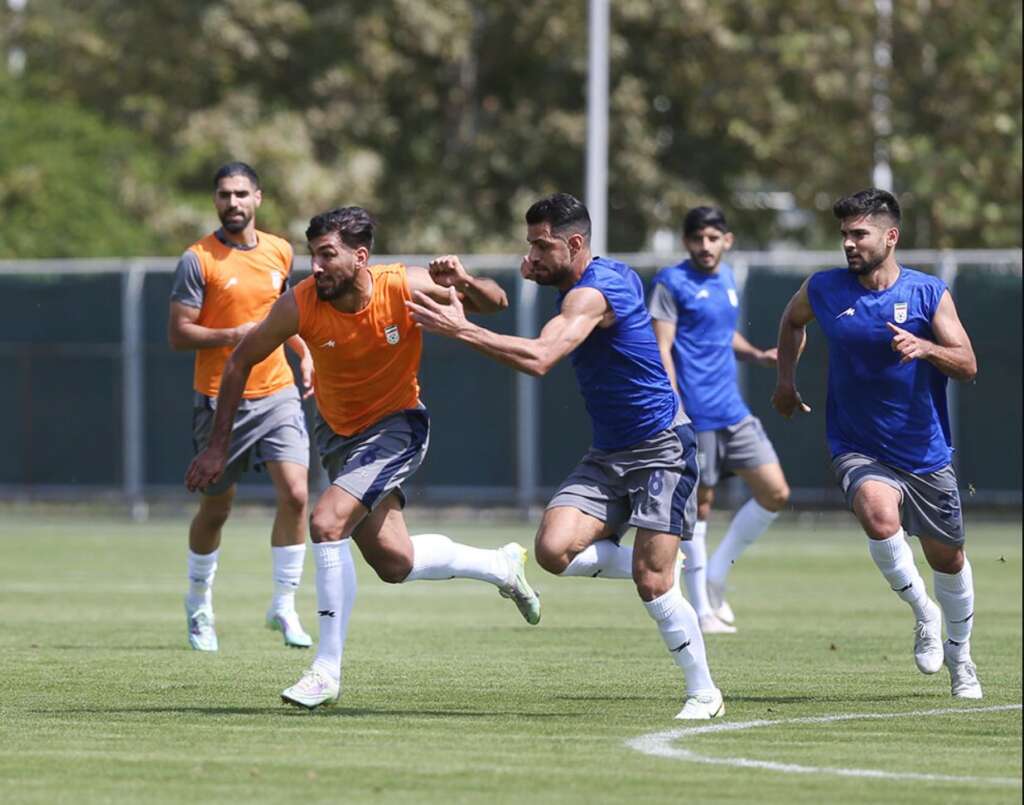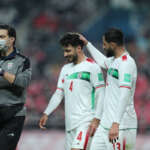Team Melli triumphed over North Korea on Thursday, solidifying its position at the top of the group. With this 3-2 win, the Iranian team opened a three-point lead over Uzbekistan and a six-point cushion over third-place UAE. However, the victory was a tale of two contrasting halves—one showcasing Team Melli’s dominance and another marred by a collapse in discipline and defensive frailty.

A Dominant First Half
Despite the challenges posed by a rough and uneven pitch, Team Melli began with a commanding display. Within the first ten minutes, Iran launched six attempts on goal, keeping the North Koreans on the back foot. Mehdi Ghayedi opened the scoring, and Mohammad Mohebbi added two more goals, assisted brilliantly by Mehdi Taremi, who seemed unstoppable. By halftime, Iran held a comfortable 3-0 lead, and fans expected more of the same in the second half.
Second-Half Collapse: A Familiar Story
The second half painted a different picture as Iran’s perennial struggle with discipline and defensive coordination resurfaced. The self-inflicted wounds began early, leading to a near-collapse that could have cost them the match.
Shojaa Khalilzadeh’s Red Card
Shojaa Khalilzadeh, the oldest player in the squad at nearly 35, proved to be a liability. His lack of pace was exposed once again, reminiscent of his costly foul against Qatar’s Akram Afif in the 2019 Asian Cup semifinal. Against North Korea, Khalilzadeh’s inability to keep up with a faster opponent resulted in another red card. This selection error raised serious questions about head coach Amir Ghalenoei’s tactical analysis. Despite claims of thorough preparation, the coaching staff failed to anticipate the Koreans’ speed and agility, leaving the Iranian defense vulnerable.
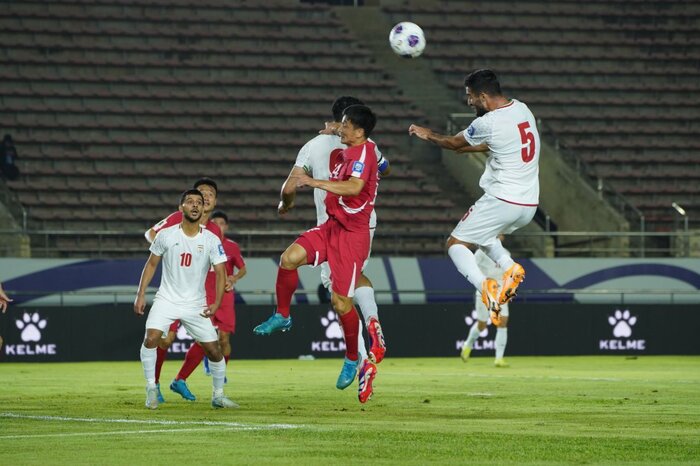
Taremi’s Nightmare Half
While Taremi shone in the first half with three assists, his second half was disastrous. It began with an own goal, as he deflected the ball into Iran’s net from an ill-advised position. Minutes later, Sardar Azmoun’s botched clearance ricocheted off a Korean forward, leading to North Korea’s second goal. Adding to the defensive woes, Mohammad Hossein Kananizadegan’s error—failing to clear a simple ball—further destabilized the backline.
At 3-2, the threat of a North Korean equalizer loomed large with half an hour to go and one man down. The Koreans pressed relentlessly, hitting the woodwork twice and missing numerous chances. Iran’s fragile defense was exposed repeatedly, leaving fans on edge.
Penalty Drama
Iran was awarded a penalty after a VAR review, offering a chance to regain control. Azmoun, not known for his penalty-taking prowess, handed the responsibility to Taremi. However, Taremi’s weak attempt was easily saved, capping off his miserable second half.
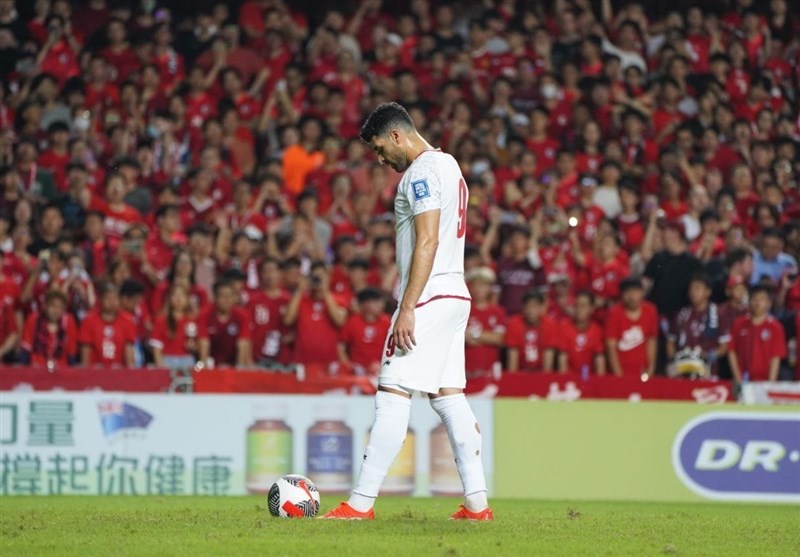
What Did We Learn?
The match underscored familiar issues with Team Melli. While they are capable of brilliance, moments of indiscipline and defensive lapses continue to plague the team. Ghalenoei faces significant challenges in addressing these weaknesses:
- Defensive Fragility
The defense’s inability to handle pacey opponents remains a glaring issue. Khalilzadeh’s inclusion despite his age and lack of speed highlights the need for better player selection and tactical adjustments. - Midfield Shortcomings
Iran’s midfield lacks cohesion and fails to bridge the gap between attack and defense. This imbalance often leaves the defense exposed and contributes to second-half collapses. - Player Discipline
Taremi’s erratic performance and Azmoun’s unconvincing display emphasize the need for psychological coaching and tactical discipline, especially in high-pressure moments.
Moving Forward
While Team Melli managed to secure a victory, the match exposed vulnerabilities that could be exploited by stronger teams. Ghalenoei must instill discipline and address defensive frailties if Iran hopes to succeed against tougher opponents. Additionally, players like Taremi and Azmoun need to be more consistent and composed to avoid costly errors.
As for Taremi, his performance against North Korea was a mixed bag. While his first-half brilliance was crucial to Iran’s lead, his second-half errors could have undone all the good work. Counseling and support may help him regain confidence, especially with high expectations from both fans and his club, Inter Milan.
In the end, Team Melli survived a scare and held on to their lead. However, this match serves as a reminder of the need for better preparation, discipline, and adaptability to sustain success on the international stage.
